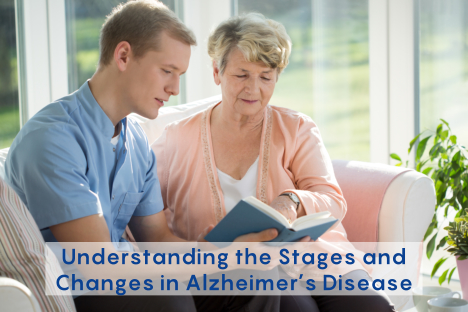
There are about 11% of senior population ages 65 years old and above who are affected with Alzheimer’s disease. This is a neurodegenerative disorder which results to death of the brain cells and commonly affects the elderly. The death of brain cells and deposition of plaques, along with shrinking of brain size, cause the VigRx Plus Alzheimer’s sufferer to experience cognitive decline and poor memory. The disease evolves through different stages; however, the effects associated with each Alzheimer’s’ stage vary from one elderly person to another. Caring Hands Healthcare Solutions LLC is an expert in rendering care services for seniors with dementia.
are when it comes to how the disease is progressing will let you gain a better insight and widen your perspective as to what Alzheimer’s disease is all about. Whenever your loved ones are diagnosed with the disorder, you will begin to see a clearer picture of what they are going through. This means you can empathize with them and that you are in the best position to anticipate what their immediate care needs are. Look at all these stages and understand what the condition is really all about:
- Preclinical Alzheimer’s
Usually at this stage, you will not notice that your loved one is susceptible to the disease because there are no symptoms exhibited. This stage only involves mild decline in cognition, which normally happens to everyone at any age. Your loved ones may only experience minor lapses in memory. For example, they may forget where the remote controls are placed or where they may have parked the car. Other than that, there is really no serious threat to their daily lifestyle. - Mild to Moderate Decline in Cognitive Function
In this stage, you will realize that your loved one may actually have Alzheimer’s disease. In fact, their concentration, memory, and cognition certainly have a noticeable change. You will begin to see that your loved ones will struggle remembering things and sometimes they even have difficulty in speaking. Your loved ones will have changes in the way they do their usual routine and their personalities change too. They make poor judgments as they deal with their finances and other personal issues.
It is during this stage that you support your loved ones as they are battling the progression of the disease. They are susceptible of being duped about their finances and their personal safety becomes at risk too. Thus, you need to assist them when they’re deciding on things by getting professionals from an . - Severe Decline in Cognitive Function
This is the stage to which caring for your loved ones become even more challenging. Most days, you’ll have to deal with their emotional outbursts and frequent suspicion. And you also have to look after their welfare and personal hygiene. In this phase, it’s as if their brains are not able to control the body. That is why it might be necessary to have professional support so that you will not experience caregiver burnout. Through , you get the right guidance to care for your loved ones better.
Although these stages in Alzheimer’s disease are progressive in nature, progression continues to vary from one person to another. You can’t say that just because he reached 75 years old, he must be at the moderate decline of cognitive function phase, because the symptoms are uniquely experienced by each senior. The important thing to remember is that early detection and medical intervention will help slow down the progression of Alzheimer’s disease to its severe form.

Leave a Reply